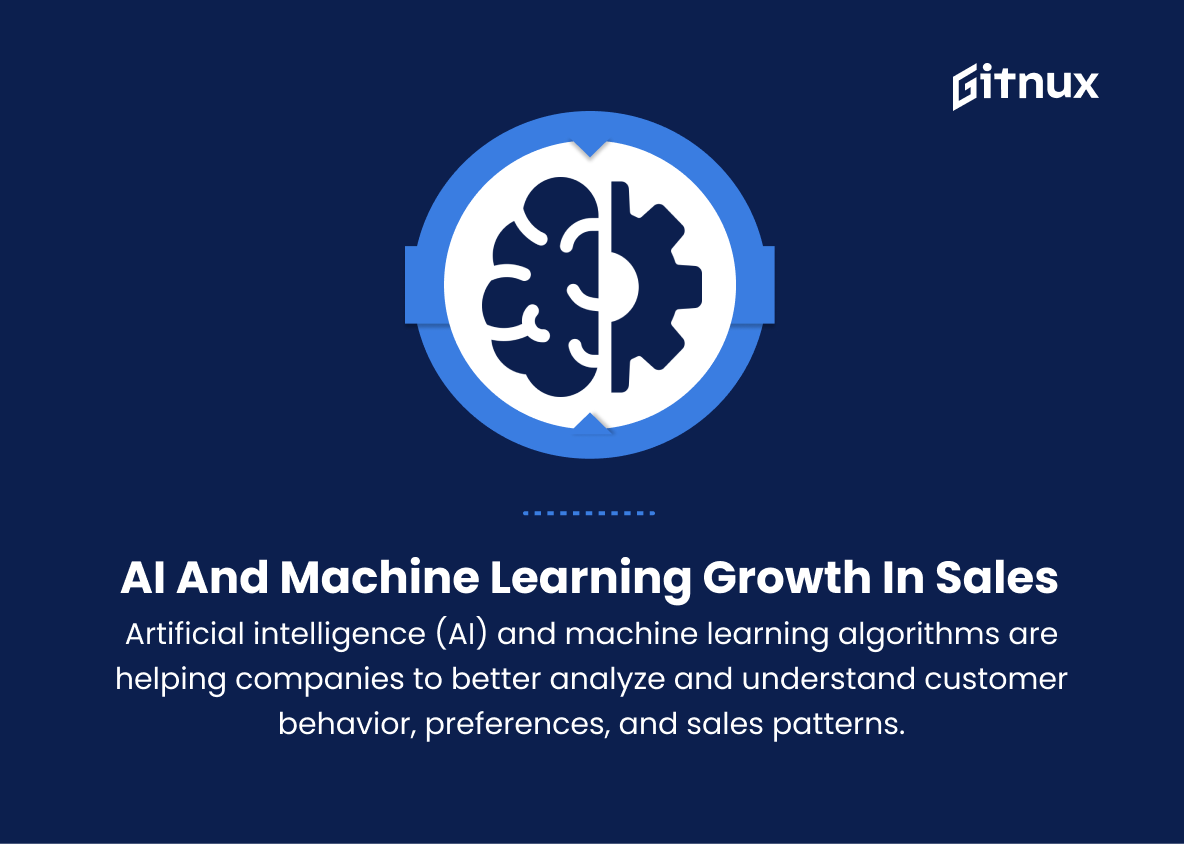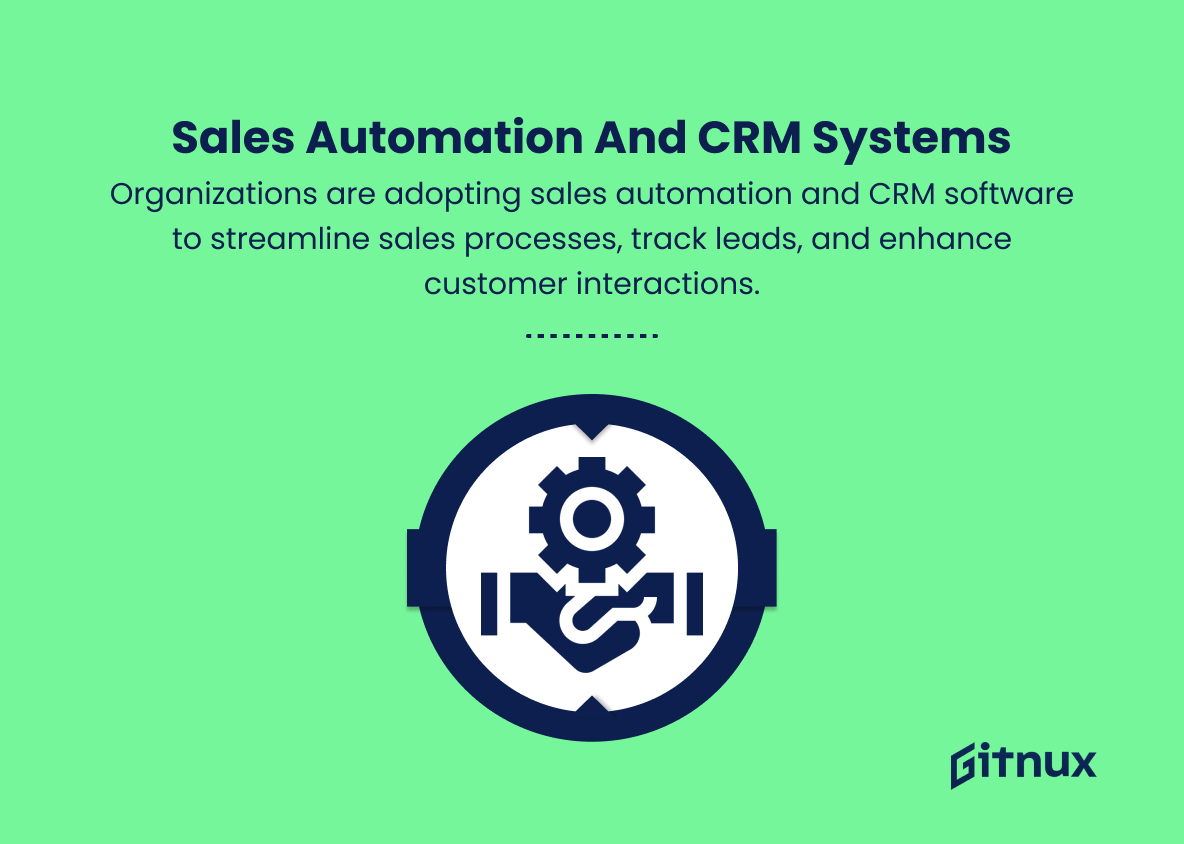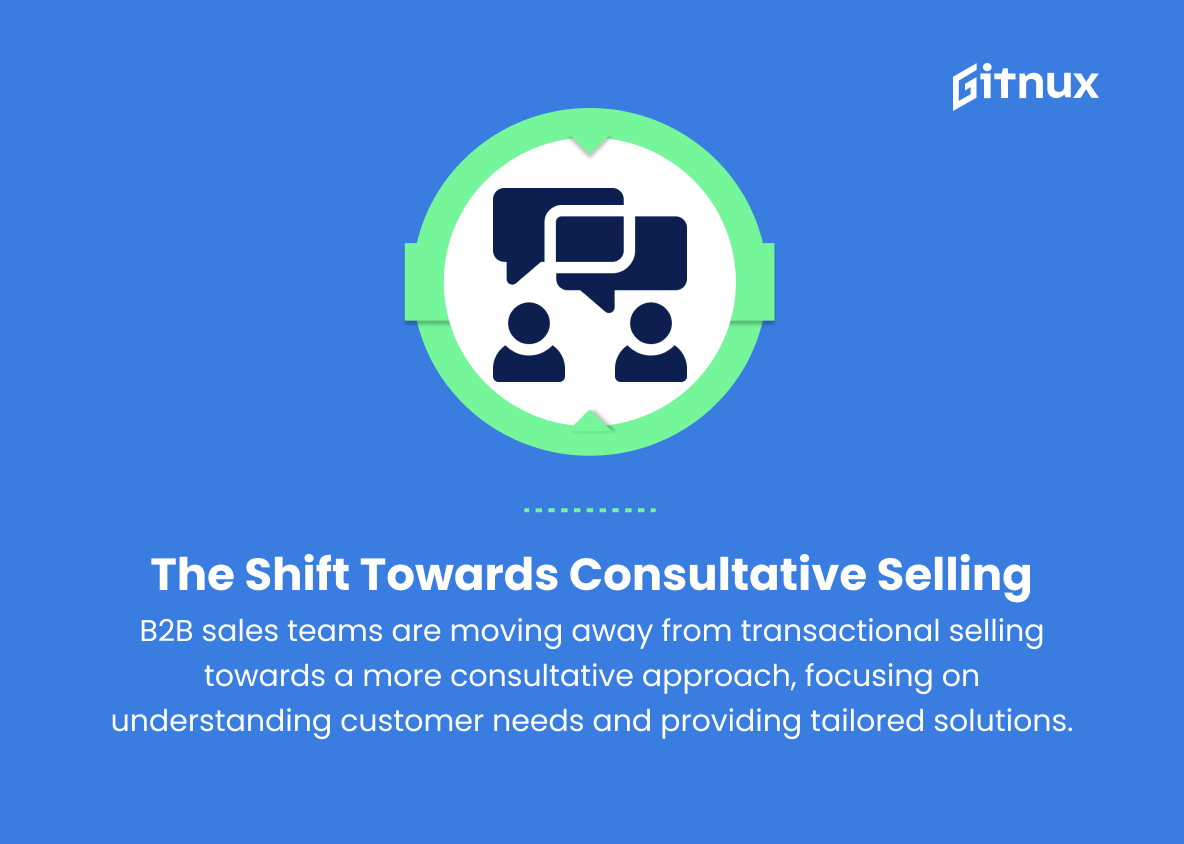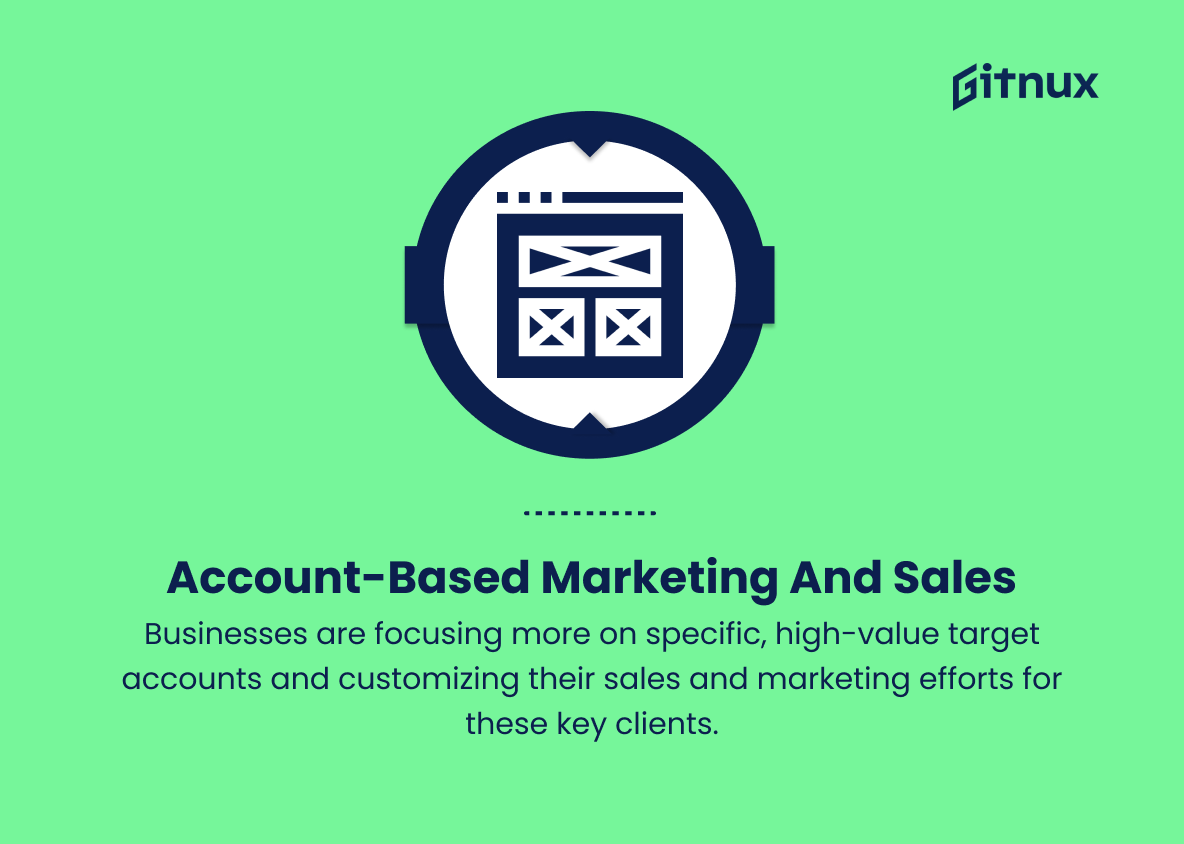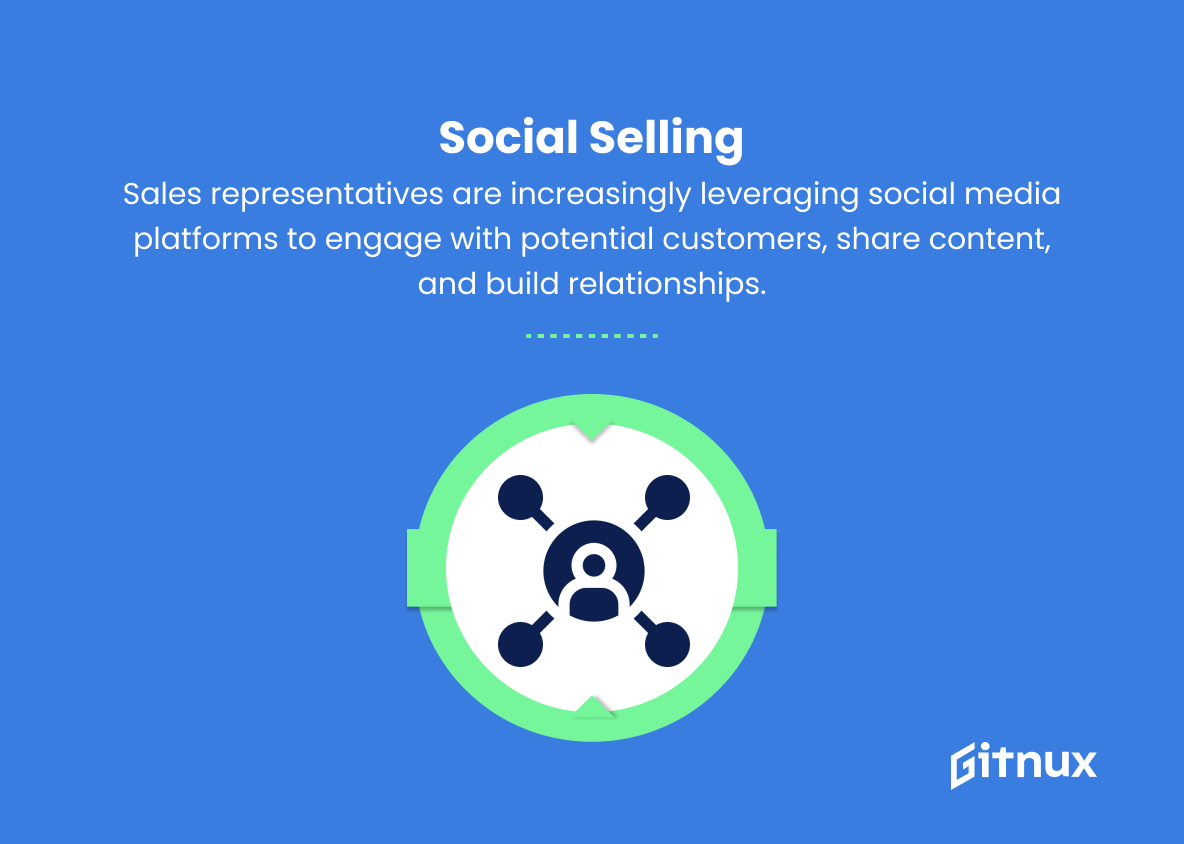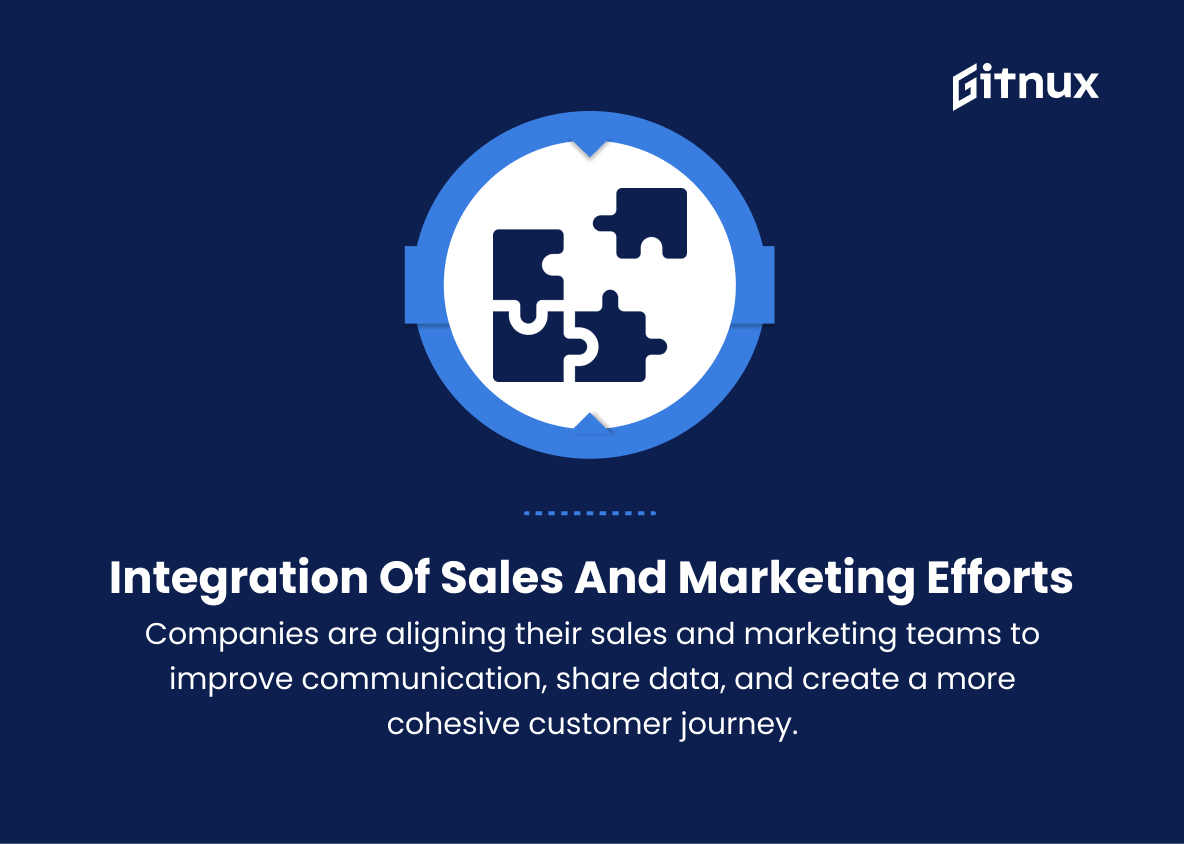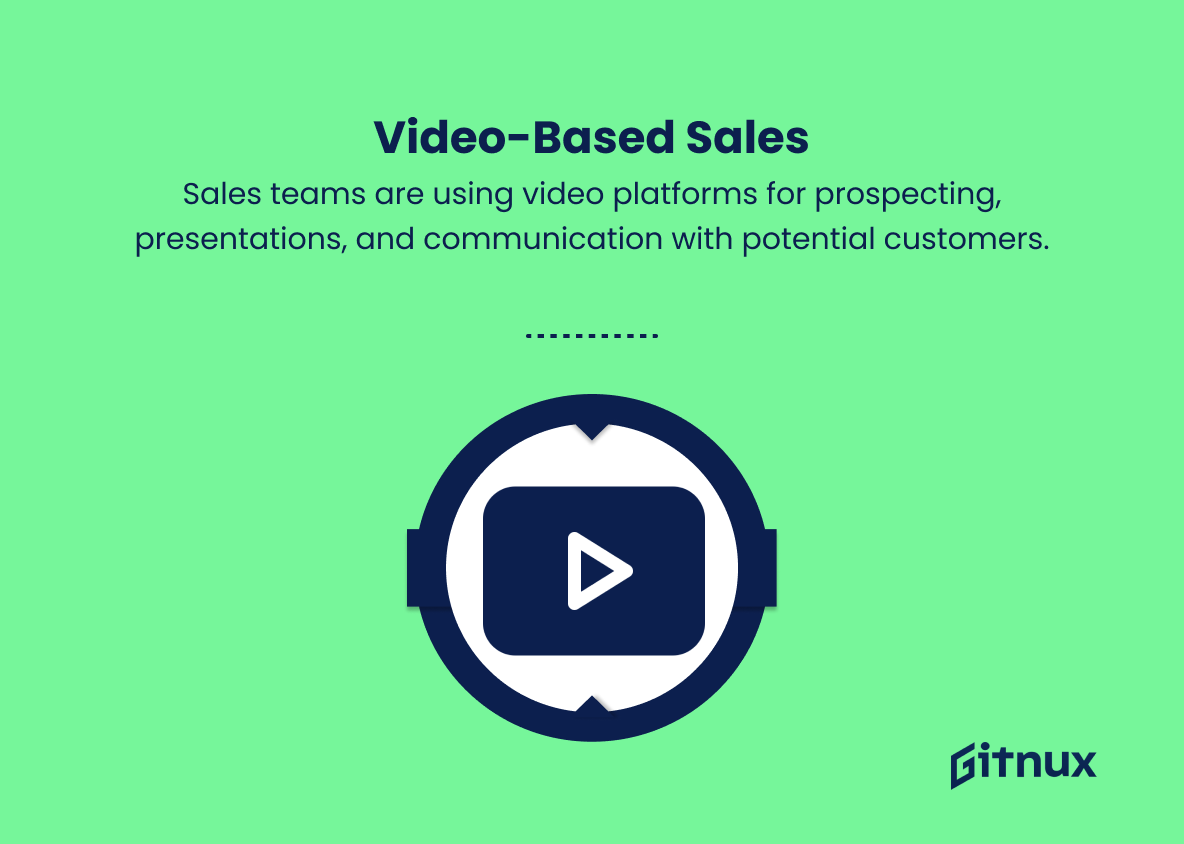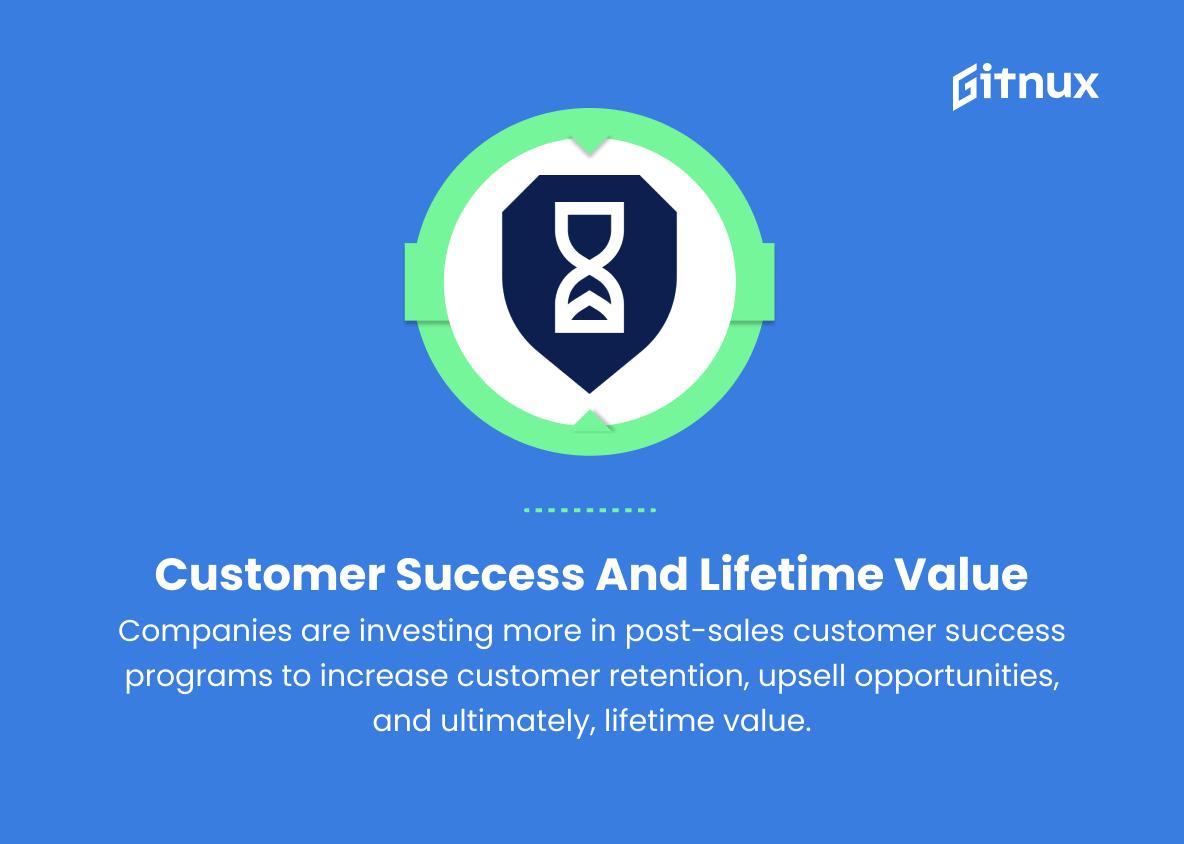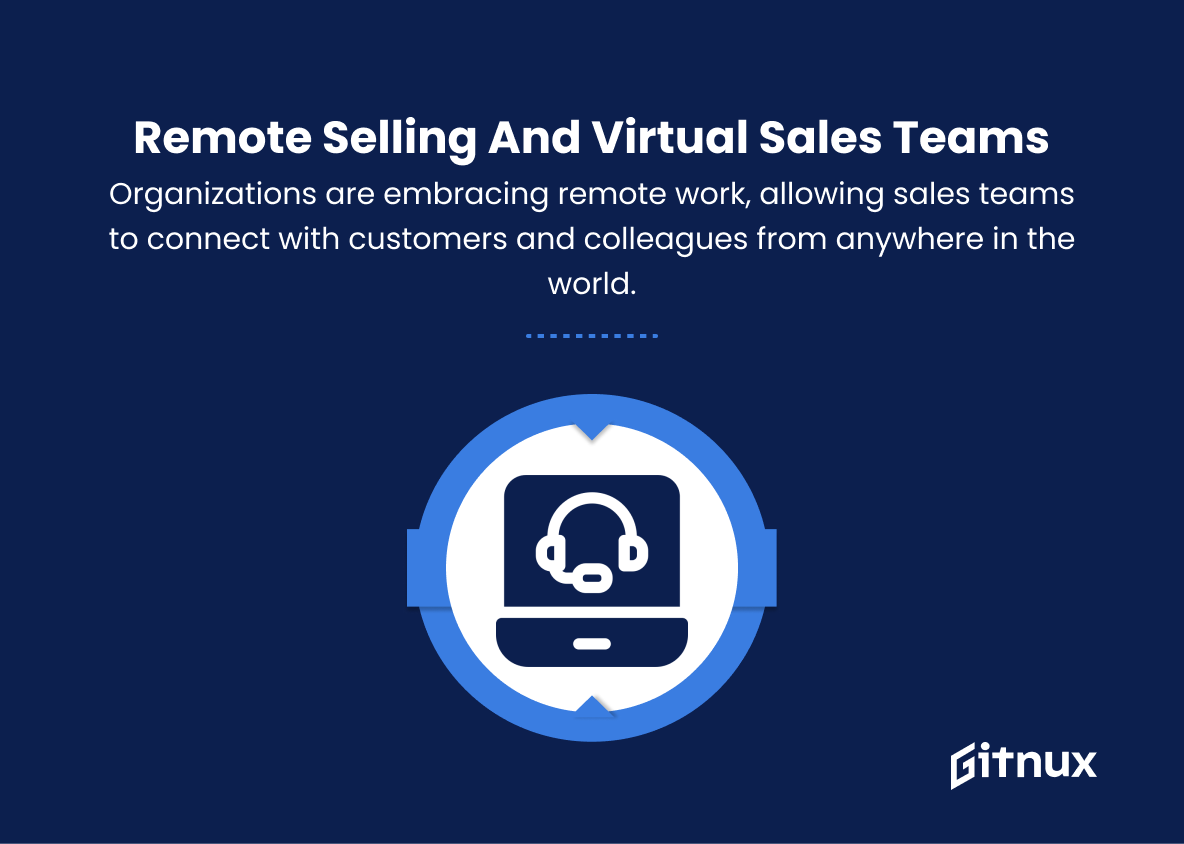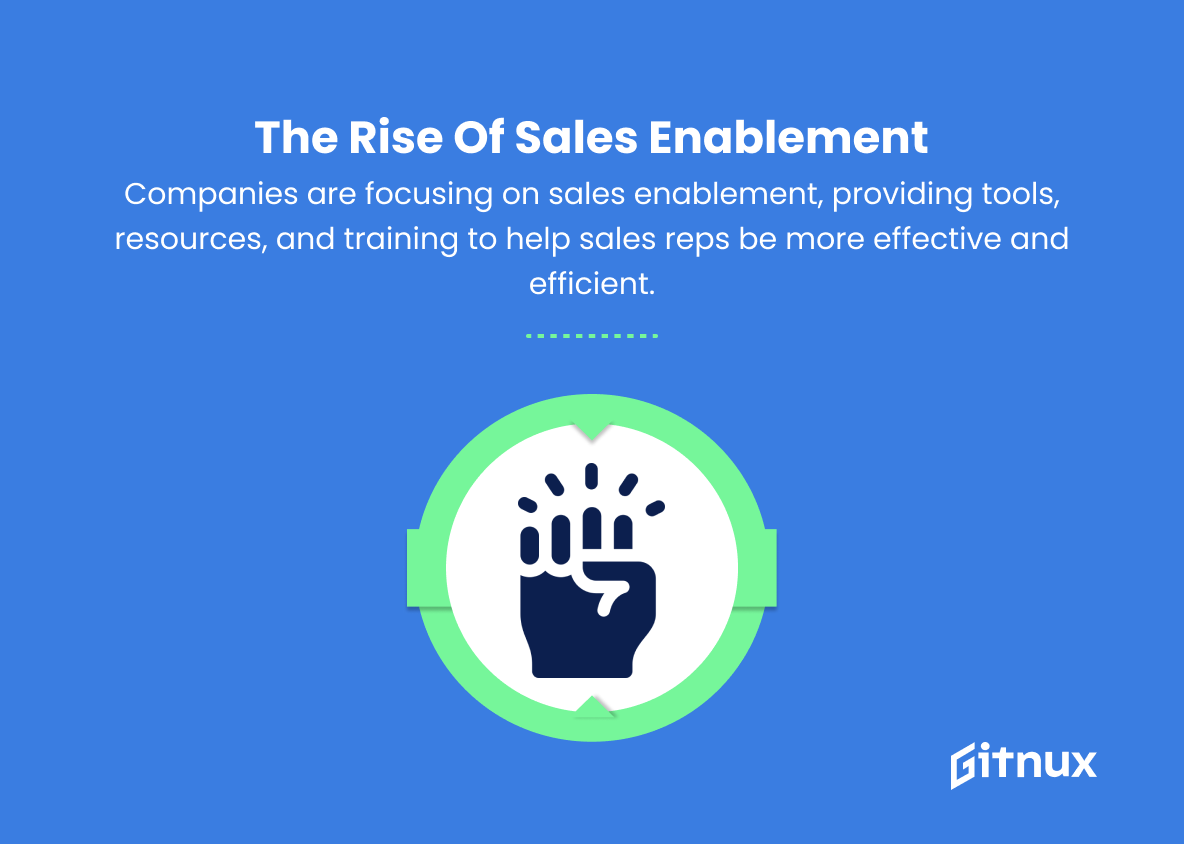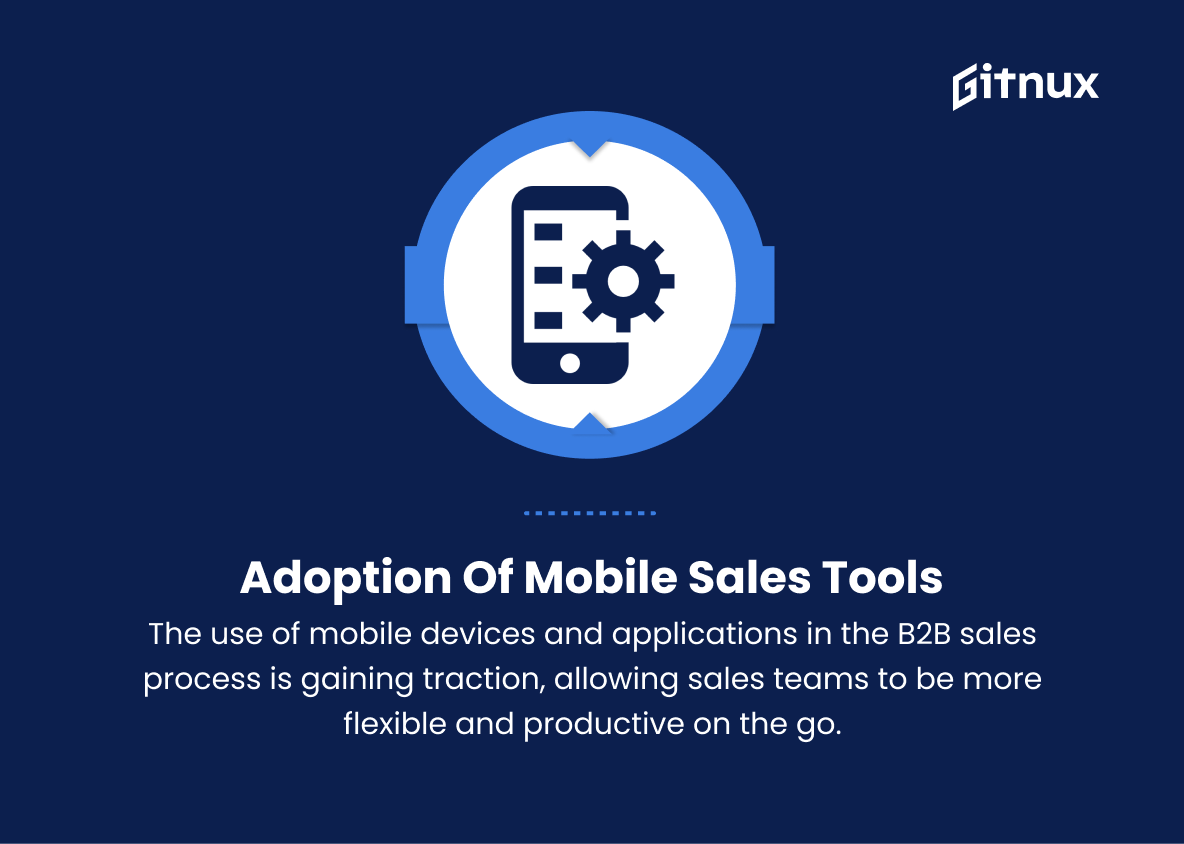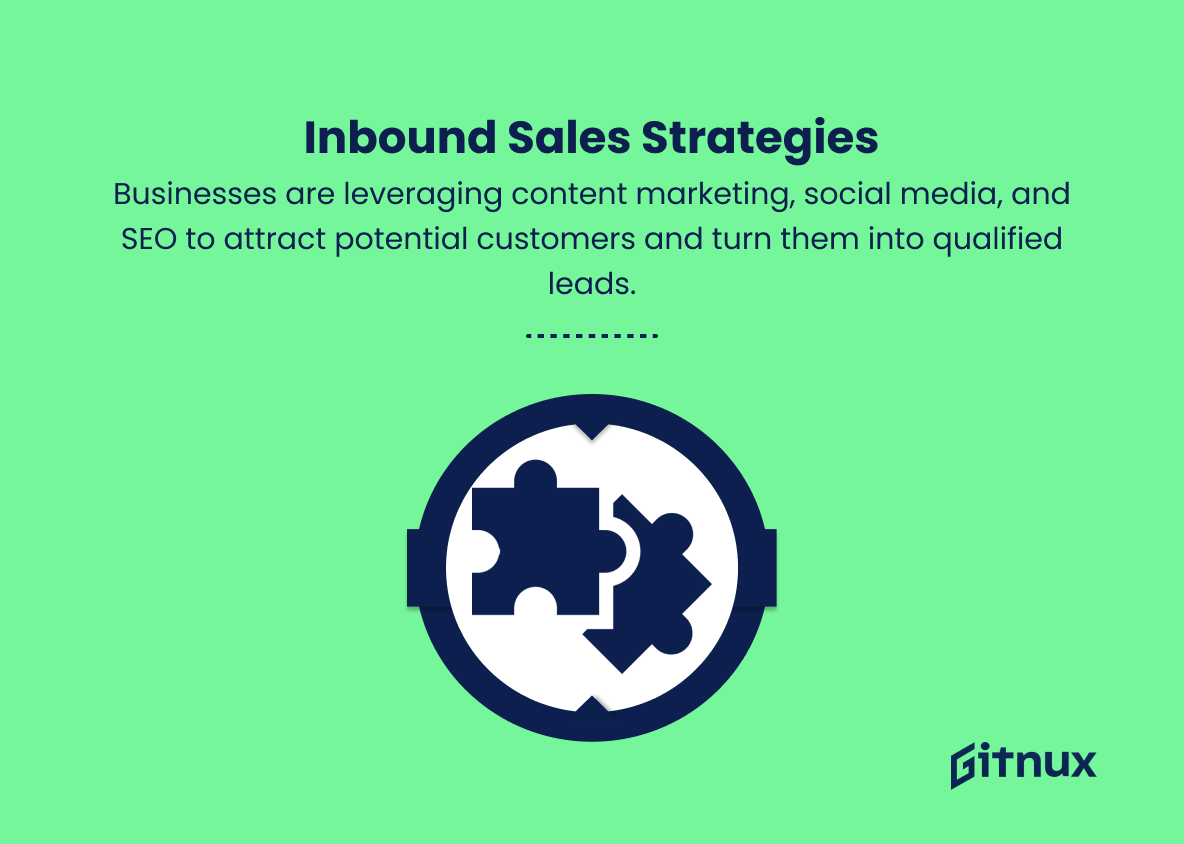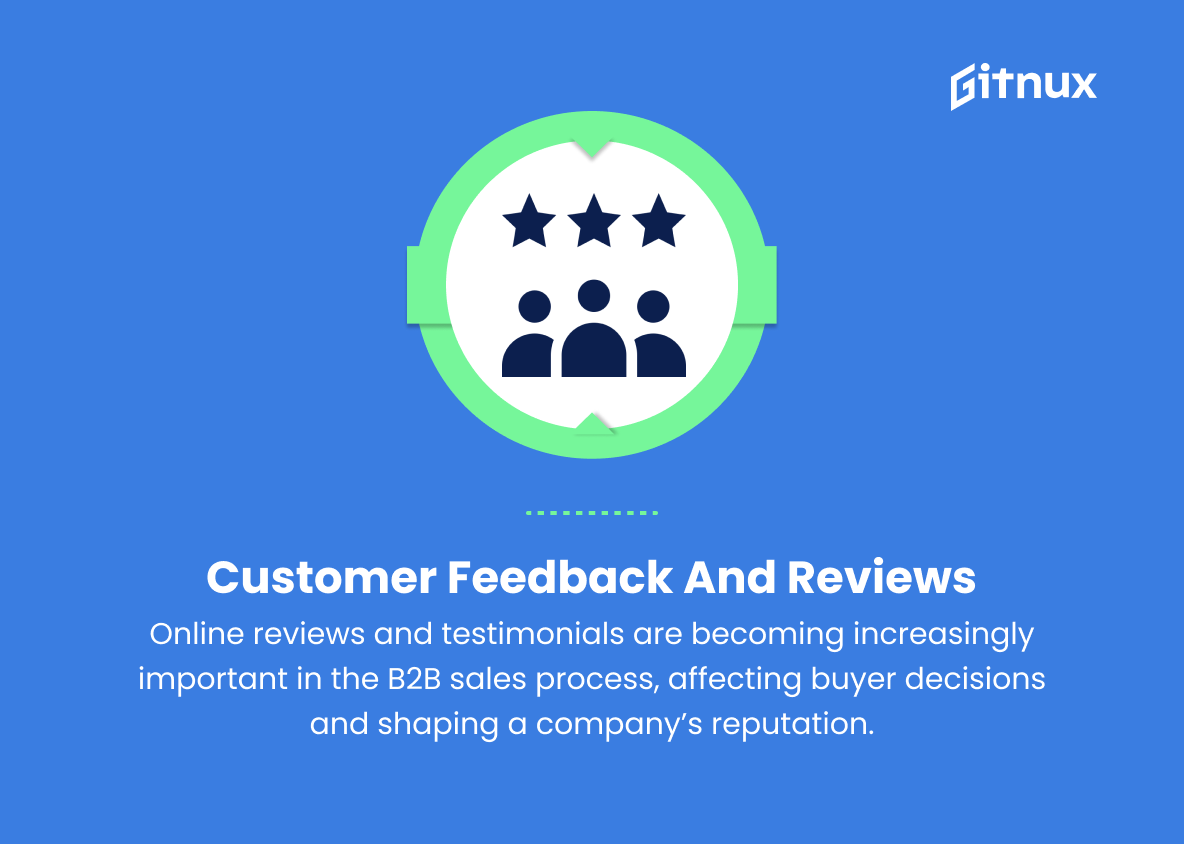In the ever-changing landscape of the business world, B2B sales professionals must remain agile and informed to secure successful transactions and fruitful collaborations. By embracing emerging strategies and evaluating the latest trends, these professionals can usher in innovation and optimization for their sales processes. This comprehensive blog post delves into the critical B2B sales trends to watch out for, equipping readers with the knowledge and insights needed to propel their business performance to new heights. Join us as we explore the driving forces behind the future of B2B sales, focusing on the integration of technology, shifting target audiences, and the importance of building strong, lasting relationships.
Top B2B Sales Trends
1. Increased use of AI and machine learning in sales processes
Artificial intelligence (AI) and machine learning algorithms are helping companies to better analyze and understand customer behavior, preferences, and sales patterns.
2. Improved sales automation and CRM systems
Organizations are increasingly implementing sales automation and customer relationship management (CRM) software to streamline their sales processes, track and manage leads, and improve customer interactions.
3. The shift towards consultative selling
B2B sales teams are moving away from transactional selling towards a more consultative approach, focusing on understanding customer needs and providing tailored solutions.
4. Personalization of sales experiences
Companies are relying on data-driven insights to personalize sales interactions, meeting customer needs more effectively.
5. Account-based marketing and sales
Businesses are focusing more on specific, high-value target accounts and customizing their sales and marketing efforts for these key clients.
6. Social selling
Sales representatives are increasingly leveraging social media platforms to engage with potential customers, share content, and build relationships.
7. Integration of sales and marketing efforts
Companies are aligning their sales and marketing teams to improve communication, share data, and create a more cohesive customer journey.
8. Video-based sales
Sales teams are using video platforms for prospecting, presentations, and communication with potential customers.
9. Focus on customer success and lifetime value
Companies are investing more in post-sales customer success programs to increase customer retention, upsell opportunities, and ultimately, lifetime value.
10. Remote selling and virtual sales teams
Organizations are embracing remote work, allowing sales teams to connect with customers and colleagues from anywhere in the world.
11. Data-driven decision-making
Sales teams are utilizing data analytics to make informed decisions, identify trends, and optimize their strategies.
12. The rise of sales enablement
Companies are focusing on sales enablement, providing tools, resources, and training to help sales reps be more effective and efficient.
13. Adoption of mobile sales tools
The use of mobile devices and applications in the B2B sales process is gaining traction, allowing sales teams to be more flexible and productive on the go.
14. Inbound sales strategies
Businesses are leveraging content marketing, social media, and SEO to attract potential customers and turn them into qualified leads.
15. The importance of customer feedback and reviews
Online reviews and testimonials are becoming increasingly important in the B2B sales process, affecting buyer decisions and shaping a company’s reputation.
16. Subscription-based and recurring revenue models
B2B companies are adopting subscription-based sales models and focusing on generating recurring revenue streams.
17. Collaboration with channel partners
Businesses are developing stronger partnerships with distributors, resellers, and other channel partners to expand their reach and improve customer experiences.
18. Continuing education and certification programs for sales professionals
Companies are investing in professional development for their sales teams to stay competitive and adapt to changing markets.
Implications
The future of B2B sales will be shaped by numerous trends and innovations that are changing the way companies interact with their customers and partners. As AI and machine learning algorithms become more prevalent in the sales process, they will empower organizations to better understand customer behavior and preferences, streamlining the sales cycle and enhancing personalized experiences.
The integration of sales automation and CRM systems will create seamless sales processes that help teams manage leads and improve customer interactions, while shifting towards a consultative selling approach to provide tailored solutions. Social selling, video-based sales, and the adoption of mobile sales tools will enable sales representatives to connect with clients from anywhere, leveraging digital platforms and remote work dynamics.
Account-based marketing and sales will push companies to focus on high-value target clients, and the alignment of sales and marketing teams will ensure a cohesive customer journey. Emphasizing customer success and lifetime value will drive businesses to invest in post-sales programs for increased retention and upselling opportunities. To stay competitive, the rise of sales enablement will push organizations to provide resources, training, and tools for sales reps to be more efficient, while ongoing education and certification programs will be necessary for continuous adaptation to the ever-changing markets.
Inbound sales strategies, like content marketing, social media, and SEO, will help businesses attract potential customers and generate qualified leads. The importance of customer feedback and online reviews will shape companies’ reputations and influence buyer decisions. As businesses explore subscription-based and recurring revenue models, collaboration with channel partners will be essential to expand reach and deliver outstanding customer experiences. These B2B sales trends signify a transformation of the industry, prioritizing customer needs, personalization, and technology-driven solutions for the future success of companies in this space.
Conclusion
As the landscape of B2B sales continues to evolve, businesses must adapt and innovate to stay relevant and successful in this competitive market. By staying informed about emerging trends, leveraging new technologies, and focusing on delivering exceptional value to customers, companies can position themselves for long-term success in the B2B sales arena.
By keeping a close eye on the trends discussed in this blog post and continuously refining their strategies, businesses can not only enhance their sales processes but also foster stronger relationships with their clients, ultimately ensuring sustainable growth and success in the ever-changing world of B2B sales.
